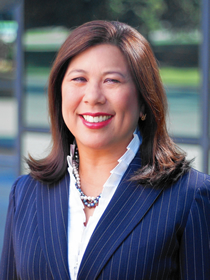You can also view this newsletter as a PDF.

Controller Yee Outlines 2019-20 Budget Highlights
For the ninth straight year, California enacted its annual state budget before July 1, the start of the new fiscal year. During the Great Recession, budgets were late by days and sometimes weeks, delaying payments to schools, local governments, businesses, and others who rely on the state to pay its bills.
Controller Yee, California’s chief fiscal officer, applauded Governor Gavin Newsom for an on-time spending plan she considers both prudent and forward-thinking, with one eye on moving California forward and the other on protecting the state from an inevitable economic downturn.
Here are some highlights of this year’s $214.8 billion state budget:
- By the end of the 2019-20 fiscal year, California will have $19.2 billion in reserves, which is intended to minimize or eliminate any need to cut programs significantly when the next downturn arrives.
- California will spend $9 billion extra over the next four years to pay down the state’s pension liabilities, $4.5 billion to eliminate the state’s wall of debt, and $1 billion to eliminate a bookkeeping gimmick adopted to cushion the blow of the last recession.
- Nearly $1.5 billion will be invested over the next three years to boost Covered California health insurance premium assistance for low-income Californians, as well as help for some middle-income Californians affected by the state’s decision to reinstate the mandate to buy insurance.
- Eligibility for the Medi-Cal Aged, Blind, and Disabled program is being expanded to 138 percent of the federal poverty level, which could help an estimated 22,000 vulnerable Californians.
 California will invest $1.75 billion for planning and producing new homes, as well as to support local governments in their efforts to get more homes built. The lack of affordable housing is an issue throughout California, most notably in coastal regions. Studies shows the state needs 3.5 million more homes in the next six years – as many as are needed in the other 49 states combined.
California will invest $1.75 billion for planning and producing new homes, as well as to support local governments in their efforts to get more homes built. The lack of affordable housing is an issue throughout California, most notably in coastal regions. Studies shows the state needs 3.5 million more homes in the next six years – as many as are needed in the other 49 states combined.- The doubling of the California Earned Income Tax Credit (CalEITC), combined with a new $1,000 tax credit for low-income families who have children under six years old, could put $500 million back into the pockets of working families.
- Higher education funding got a boost, allowing the state to freeze tuition and increase the number of qualified students who could be admitted to a University of California or California State University campus.
 Investments in K-14 education went up as well, including $90 million to recruit and retain qualified teachers and tackle the state’s chronic teacher shortage. The 2019-20 budget includes a deposit of $376.5 million into the Proposition 98 educational reserve fund to the lessen the impact on schools of a future economic downturn. In addition, the state will begin paying for two years, not just one, of community college tuition for first-time, full-time students.
Investments in K-14 education went up as well, including $90 million to recruit and retain qualified teachers and tackle the state’s chronic teacher shortage. The 2019-20 budget includes a deposit of $376.5 million into the Proposition 98 educational reserve fund to the lessen the impact on schools of a future economic downturn. In addition, the state will begin paying for two years, not just one, of community college tuition for first-time, full-time students.- Nearly $1 billion was appropriated to address the impacts of climate change and wildfires in the state. Those funds will be used to improve forest health, prevent wildfires, upgrade the emergency 911 system, and provide new equipment to the state’s firefighting forces.
- An initial investment of $130 million will be made toward ensuring all Californians have access to clean and safe drinking water, with a commitment to another $130 million annually until 2030.
The State Controller’s Office reports monthly on California’s revenue receipts and expenditures, presenting both monthly and fiscal year-to-date totals and comparisons to assumptions in the enacted state budget. These Monthly Statements of General Fund Cash Receipts and Disbursements can be found on Controller Yee’s public website.
Office of Tax Appeals Aims to
Ensure Transparency and Accessibility
 In June 2017, legislation was enacted to reduce the duties of the State Board of Equalization (BOE) to its core functions. The Taxpayer Transparency and Fairness Act (Assembly Bill 102-Committee on Budget) also created two new agencies — the California Department of Tax and Fee Administration (CDTFA) and the Office of Tax Appeals (OTA) — to perform many former BOE tasks.
In June 2017, legislation was enacted to reduce the duties of the State Board of Equalization (BOE) to its core functions. The Taxpayer Transparency and Fairness Act (Assembly Bill 102-Committee on Budget) also created two new agencies — the California Department of Tax and Fee Administration (CDTFA) and the Office of Tax Appeals (OTA) — to perform many former BOE tasks.
CDTFA now has responsibility for administering business taxes (sales and use taxes and special taxes and fees such as fuel taxes, tobacco taxes, and cannabis taxes) previously administered by BOE. The Franchise Tax Board (FTB) continues to administer personal income taxes and corporate franchise and income taxes.
Established as an independent and impartial appeals body, OTA adjudicates tax appeals from California taxpayers regarding various taxes and fees administered by CDTFA and FTB. OTA appeals are heard in Sacramento, Fresno, and Los Angeles. OTA’s inaugural hearing on franchise and income tax matters was held on January 22, 2018. The first hearing for business taxes was held on January 23, 2018.
Taxpayers may represent themselves in an OTA appeal or be represented by an attorney, CPA, or any adult they choose. OTA designed the appeal process to be as informal as possible so taxpayers do not need special training or experience to present a case.
OTA must publish written opinions for all cases in which it makes a determination. As of August 2019, OTA has published 362 franchise and income tax opinions with 17 being precedential, six pending precedential, and the balance nonprecedential. The disputed issues include the imposition of penalties, whether the statute of limitations had expired, taxation of nonresidents, and whether a corporate entity is doing business in California. The first OTA opinion for business taxes was issued in July 2018. This business tax appeal related to whether seized tobacco products should be forfeited. Between July 2018 and August 2019, OTA has published 31 business tax opinions with five being precedential and 26 nonprecedential.
Initially, OTA was authorized to decide tax disputes with a three-member panel of administrative law judges. Legislation enacted in 2019 (Senate Bill 92-Committee on Budget) gave taxpayers the option of requesting that less complex tax appeals be decided by one administrative law judge. The decision of one administrative law judge will not have precedential effect.
OTA has established an advisory committee. Its members include representatives from various accounting firms, law firms, businesses, universities, and associations, to ensure an effective and efficient appeals process.
Overall, OTA is achieving its goal of providing appeals that are:
- Objective – Decisions based on facts and in accordance with law.
- Transparent – Procedures and decisions available and understandable to all.
- Accessible – A process that allows taxpayers to either represent themselves or select a representative of their choice.